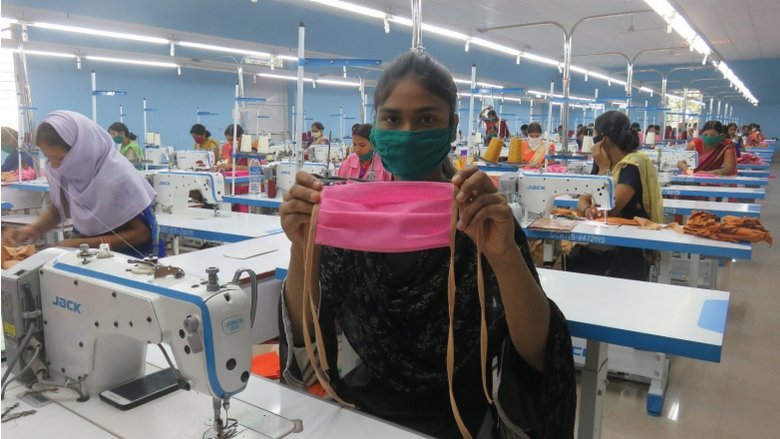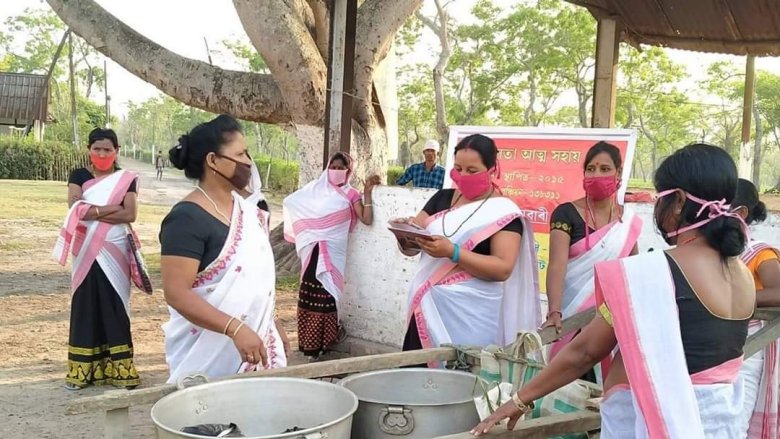Raising awareness
Importantly, the SHGs are helping curb rumor and misinformation. "The, providing critical support to the government in this hour of need. The recent devasting impact on migrant labor, where huge numbers of suddenly out-of-work families started walking back to their villages hundreds of miles away, shows how critical it is for authentic information to filter down to the grassroots,¡± explained Varun Singh, the Bank's social development specialist.
Women's groups are also disseminating Covid related messages among hard-to-reach populations. In Kerala, Kudumbashree is spearheading the government's Break the Chain campaign by raising awareness about hand hygiene and social distancing through mobile phones, posters and weekly meetings. In Bihar, one of India's poorest states, - the state's SHG platform ¨C is spreading the word about handwashing, quarantine and self-isolation through leaflets, songs, videos and phone messages.
. In Jharkhand, where large numbers of people migrate to other states to work, they are running a dedicated helpline for returning migrants and other vulnerable families.
Providing banking and pension services
Since access to finance is critical for people to sustain themselves during the lockdown, SHGs women who also work as banking correspondents have emerged as a vital resource. Deemed as an essential service, these bank sakhis have continued to provide doorstep banking services to far-flung communities, in addition to distributing pensions and enabling the most needy to access credits into their accounts through direct benefit transfers (DBT). Banks have given these women special orientation and provided them with financial incentives to enable them to continue to work during the lockdown.
"Women at the center of development has been an important story in South Asia. In these extraordinary times, when we are all united in our fight against the Covid 19 virus, these women's groups are playing a critical role,¡± said Junaid Ahmad, the World Bank's country director in India.
"Across the country, women's SHGs have risen to this extraordinary challenge with immense courage and dedication,¡± summed up Alka Upadhyay, Additional Secretary in India's Ministry of Rural Development, which manages the NRLM.
"Their quick response to food insecurity and shortages in goods and services shows how this decentralized structure can be a vital resource in a time of crisis. The strength of India's rural women will continue to be essential in building back economic momentum after the most critical period is over.¡±
Women's SHGs are being supported by Government of India's National Rural Livelihoods Mission (NRLM) which is co-financed by the World Bank. NRLM has scaled up the SHG model across 28 States and 6 Union Territories of the country, reaching more than 67 million women. The women have saved $1.4 billion and leveraged a further $37 billion from commercial banks.



